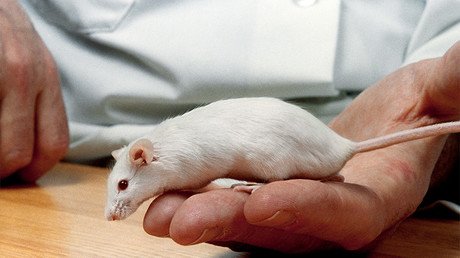Cure for obesity? Scientists learn how to switch off hunger ‘alarm’

A team of researchers from the University of Pennsylvania has demonstrated how to turn off a so-called hunger alarm system that becomes active when you’re hungry, leading to hopes for obesity sufferers worldwide.
Being hungry can have an adverse effect on everyone, some become irritable, others downright crazy. The mere sight or smell of food can alleviate hunger cravings for a time and researchers have shown why this is the case.
Contained within the brain are neurons responsible for the drive to eat. These neurons, known as AgRP neurons, remain active until they receive a signal from the stomach telling the brain that food has been ingested.
“When these neurons are firing, they're basically telling you, 'You'd better go get food; you're starving,” Penn State biology professor, J. Nicholas Betley, said. “They're a sensitive alarm system. And what this study conclusively demonstrated is that nutrients are the primary regulators of this alarm system.”
The team figured a way to suppress these neurons in mice, by giving them a combination of hormones, which are usually released during digestion, and realised that the treatment “calmed the activity of these neurons.”
The team believe that this treatment could be effective in reducing overeating and obesity in humans. Betley and his colleagues now hope to further explore the ways these hormones suppress AgRP neuron activity, possibly devising a method to trigger the release of these hormones in the gut by tricking it into thinking it has eaten when it has not.
Furthermore, they hope that their work could also be used to give an insight into behavioral strategies to reduce food intake and not simply focus on pharmaceutical approaches.
“It would be interesting to see whether consuming smaller meals more frequently might lead to less activity in the neurons and thus less food intake overall," Betley said. "Or maybe we can develop better combinations of foods or better ways of eating so we can avoid that 9pm. binge on Oreo cookies when you've had a really great diet all day.”















